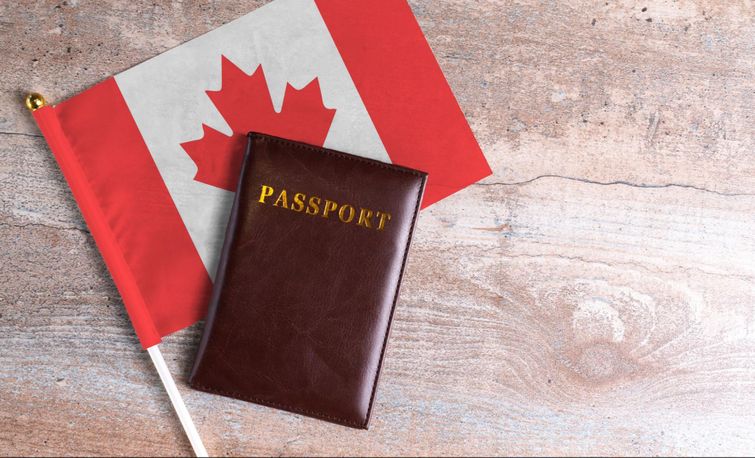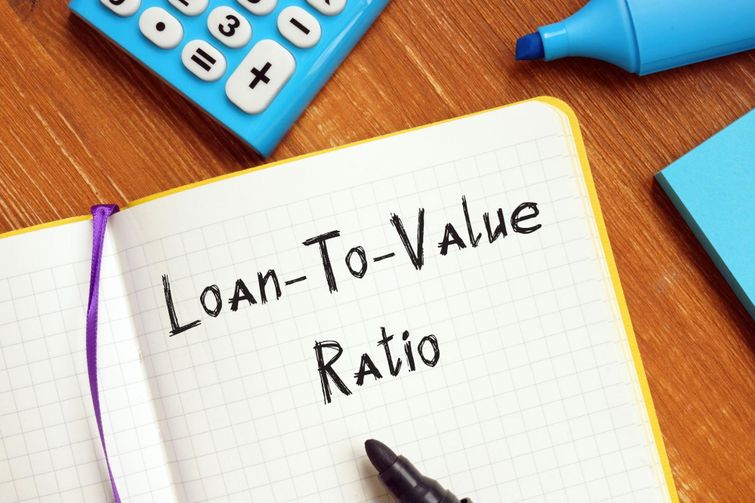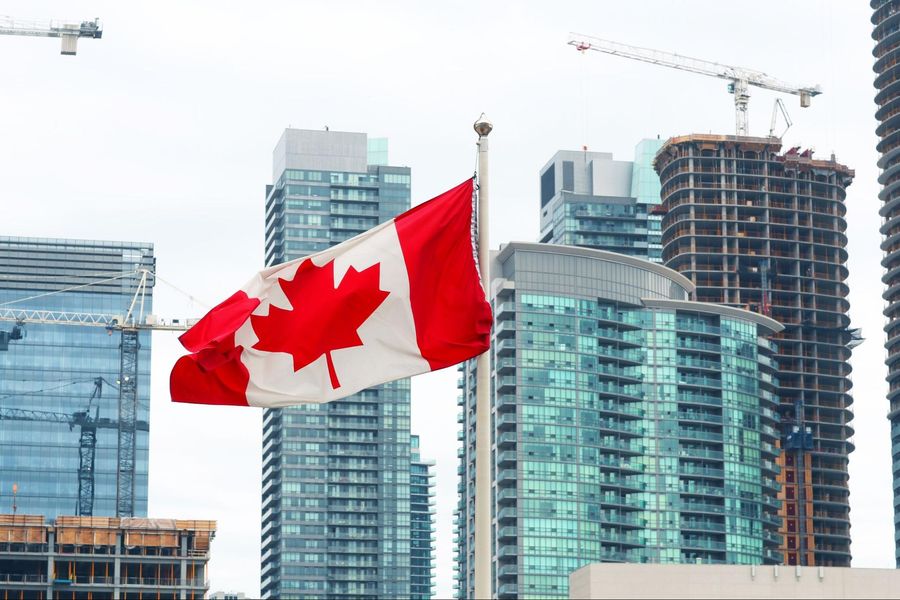Last Updated on October 24, 2023 by Corben Grant
Every year, Canada welcomes thousands of new immigrants to live, work, and achieve the dream of a new life in our country. One of the biggest lifestyle dreams for both native Canadians and newcomers is that of homeownership. And, nothing makes you feel more at home in your new country than owning the place where you live.
If you have moved to Canada recently or are planning to immigrate, you are going to have a lot to learn and get used to. This is no different when it comes to buying a home.
There can be many boundaries for newcomers to Canada when it comes to buying a home. Some of the biggest issues are lack of things like a Canadian employment history or Canadian credit history. Luckily, there are mortgage options designed specifically for newcomers to Canada, aptly known as Newcomer mortgages. This can be a great option for those who are looking to get started in homeownership after recently immigrating to Canada.
In this article, we will look at what exactly a newcomer mortgage is, who qualifies, how they differ from standard mortgages, and whether they are right for you.
Can newcomers and foreigners buy homes?
In recent times, amid an increasingly hot housing market, there has been a lot of talk about bans on foreign buyers in the Canadian real estate market. Luckily, if you are actually immigrating to Canada and staying here as a permanent resident, you should have no issues buying in Canada. In fact, the CMHC Mortgage Consumer Survey indicates that in 2019, up to 18% of mortgage borrowers were newcomers to Canada.
The proposed ban is mostly designed to target foreign influence from those who have no real stake in Canadian life, not for newcomers to Canada who hope to live here. Canada welcomes new immigrants to be fully part of our society and that includes full access to property ownership. But, on the other hand, you might be wondering if you can immigrate to Canada by purchasing a property here?. Unfortunately, this is not how the Canadian immigration system works. Owning property will not offer you any real advantages when it comes to being accepted for immigration and you will still need to go through the same process as anyone else.
What is a newcomer mortgage?
A newcomer mortgage is a special mortgage product offered by Canadian lenders designed to make it easier for newcomers to Canada to purchase homes despite difficulties they may face. Some common difficulties for newcomers are that they may not have a Canadian employment history, it may be more difficult to prove income and savings, and they may have a limited Canadian credit history. Both your credit history and your employment history play an important role in qualifying for a conventional mortgage, so for newcomers, this can make it very hard to qualify.
In a newcomer mortgage, banks are less strict on these requirements, though there are additional criteria for eligibility that go above what may be required for a conventional mortgage to make up for the lower standards in these other areas.

Different lenders offer mortgages to newcomers, but they do have various different criteria and mortgage terms and are offered under different product names. Some of these include the CIBC Newcomer to Canada Program Mortgage, RBC Mortgage for Newcomers to Canada Program, and Scotiabank StartRight Mortgage Program. Consider working with a mortgage broker to help you find and compare these different programs to see what is right for you.
Who is eligible?
There are a few criteria that a borrower must meet in order to be considered a newcomer and to qualify for the appropriate mortgage. The qualification requirements may vary slightly between different lenders, but we are going to go over some of the most common requirements among most lenders.
Overall, the terms available for newcomer mortgages are a bit less favourable than a conventional mortgage. There is a trade-off that newcomers must accept between accessing home financing in exchange for stricter terms. The banks do this to protect themselves, as they are unable to rely as much on your creditworthiness due to a lack of history in Canada, making these loans somewhat riskier in their eyes. Taking on mortgage default insurance can in some cases make terms a little more favourable, but it does come with its own costs and eligibility criteria as well.
Who counts as a newcomer to Canada?
The first step is determining if you are a newcomer in the eyes of the bank. Usually, this means someone who has moved to Canada in the last five years. Newcomer mortgages also mostly cater to those who are either permanent residents or temporary residents with work visas. Some lenders may also offer something similar to a newcomer mortgage for Canadian citizens who have lived abroad for a number of years and have a lack of Canadian work or credit history.
Even if you qualify under these rules, you still may be able to get a conventional mortgage if you have two years of employment history in Canada and enough for a 20% downpayment.
Down payments may be larger in some cases
Another area where newcomer mortgages differ is in down payments. If you have not been employed in Canada for at least two years, some lenders will require larger down payments of at least 35% in order to get a mortgage. In order to pay a lower down payment, you will either need a longer employment history or pay to get mortgage default insurance on your loan.
Some lenders will also prevent you from taking a mortgage loan if a portion of your down payment is loaned or borrowed. Lenders may also limit your options for an amortization period, for example restricting you to a period of only 25 years.
Mortgage rates are comparable
In terms of mortgage rates, the rates available to newcomers are comparable to conventional mortgages, but they will vary greatly from lender to lender and based on the borrowers’ circumstances. Generally, the longer your employment history in Canada, the size of your down payment, and whether or not you have mortgage insurance are all ways you can impact the mortgage rates you are offered.
Some lenders require references from home bank
Finally, though you may not have much financial history in Canada, you probably have more history in your country of origin. Some lenders will require you to get a letter of reference from your bank in your originating country if you do not have two years of employment history in Canada.
Newcomer Mortgage Default Insurance
Just like with conventional mortgages, you can get mortgage default insurance when you have a newcomer mortgage. Mortgage insurance for newcomers is its own separate category of default insurance and has its own criteria required for eligibility. Here is an overview of some of the criteria required to get CMHC mortgage insurance as a newcomer to Canada.
Permanent residents vs. non-permanent residents
Firstly, borrowers will fall into one of two categories, these being permanent residents and non-permanent residents (people who live in Canada and are legally authorized to work via a work permit). These two categories will depend on how the CMHC determines your creditworthiness.
For permanent residents, CMHC requires at least one borrower or guarantor in the transaction to have a credit score of at least 600, though they may offer alternative accommodations for those with no credit score at all.
For non-permanent residents originating from the U.S. who do not have a Canadian credit history, CMHC can obtain an international credit report for qualification purposes. For those coming from somewhere other than the U.S. and lacking a credit history, CMHC will require a letter of reference from the borrower’s bank in their originating country.
Once creditworthiness has been established, there are a couple of other criteria the CMHC requires for their insurance coverage.
Maximum loan to value ratios (LTV)
Permanent residents who are purchasing owner-occupied units must have a maximum loan-to-value ratio of 95% for a 1-2 unit property, and 90% for a 3-4 unit property. Non-permanent residents may only qualify if purchasing a one-unit property at a minimum of 90% LTV.

Minimum down payments
As is common with all CMHC insurance, the minimum down payment may only be 5% on properties costing $500,000 or less, and a minimum of 10% on any amount above that. The borrower must also be purchasing a property of less than $1 million to qualify.
Amortization period and debt service ratios
Borrowers using this insurance are limited to 25-year amortization periods. They must also meet certain debt service requirements with a maximum of 39% gross debt service ratio and 44% total debt service ratio.
These debt service ratios are also subject to the mortgage stress test, like any other mortgage, requiring to be calculated at a rate of 2% above the contract rate, or 5.25%, whichever is higher. Borrowers will have access to both variable and fixed-rate options.
Insurance rates
Finally, the actual price for insurance premiums with CMHC newcomer’s mortgage loan insurance is the same as those required by standard mortgage insurance.
Newcomers may also get Sagen mortgage insurance or Canada Guaranty mortgage insurance. These companies offer similar criteria to the CMHC rules, though the exact rules may differ.
Applying for a newcomer mortgage
Besides having different qualification criteria and offering slightly different terms, the process of acquiring a newcomer mortgage is very much the same as getting a conventional mortgage.
The first step will be to save up for a down payment and . From there, you should look into getting pre-approved by a mortgage lender. Because the terms offered for newcomer mortgages can vary between lenders, you should seriously consider working with a mortgage broker who will help you to find the best offer for your circumstances.
From there, it’s time to talk to a real estate agent and enter the market in search of a home. If all goes well, you can happily move in and begin making mortgage payments towards your loan.
Is a newcomer mortgage right for me?
Newcomer mortgages offer a great opportunity to those who would otherwise have a lot of difficulties getting a mortgage. However, they also are a bit more limited than a conventional mortgage. If you are eager to move in as soon as possible, have enough money to reach the financial requirements, and don’t mind the more restrictive terms, this can be a great option for you. However, for those who need or don’t make as much, it might be more worth your while to wait until you can qualify for a conventional mortgage and save a bit more in the meantime. As mentioned before, it’s highly recommended that you talk to a mortgage broker or financial advisor to find out what is most feasible for your financial circumstances.
Corben joined CREW as a relative newcomer to the field of real estate and has since immersed himself and learned from the experts about everything there is to know on the topic. As a writer with CREW, Corben produces informative guides that answer the questions you need to know and reports on real estate and investment news developments across Canada. Corben lives in Guelph, Ontario with his partner and their two cats. Outside of work, he loves to cook, play music, and work on all kinds of creative projects. You can contact Corben at corben@crewmedia.ca or find him on Linkedin at https://www.linkedin.com/in/corbengrant/.









